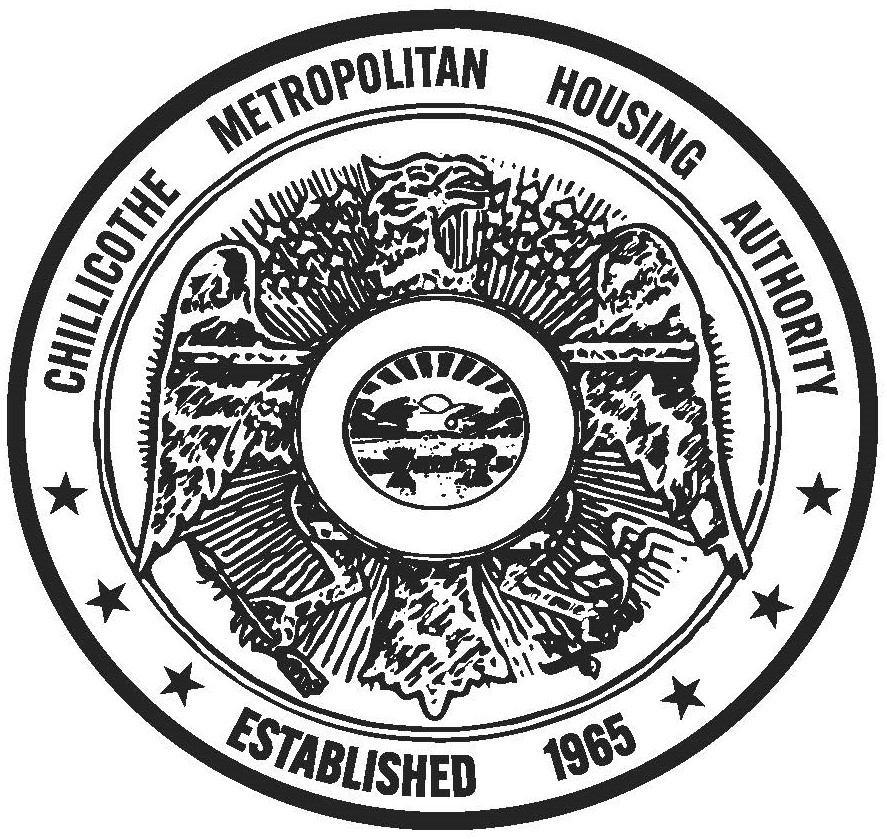Notice to HCV Waiting List Applicants
Processing of applications from the Housing Choice Voucher (HCV) waiting list is taking longer than expected due to a funding shortfall. Unfortunately, we do not yet know how long the delay will be. We will begin contacting applicants as soon as funding allows us to resume issuing vouchers. Thank you for your patience. 11/13/2025.
What are housing choice vouchers?

The housing choice voucher program is the federal government's major program for assisting very low-income families, the elderly, and the disabled to afford decent, safe, and sanitary housing in the private market. Since housing assistance is provided on behalf of the family or individual, participants are able to find their own housing, including single-family homes, townhouses and apartments.
The participant is free to choose any housing that meets the requirements of the program and is not limited to units located in subsidized housing projects.
Housing choice vouchers are administered locally by public housing agencies (PHAs). The PHAs receive federal funds from the U.S. Department of Housing and Urban Development (HUD) to administer the voucher program.
A family that is issued a housing voucher is responsible for finding a suitable housing unit of the family's choice where the owner agrees to rent under the program. This unit may include the family's present residence. Rental units must meet minimum standards of health and safety, as determined by the PHA.
A housing subsidy is paid to the landlord directly by the PHA on behalf of the participating family. The family then pays the difference between the actual rent charged by the landlord and the amount subsidized by the program.
Housing vouchers - how do they function?
The housing choice voucher program places the choice of housing in the hands of the individual family. A very low-income family is selected by the PHA to participate is encouraged to consider several housing choices to secure the best housing for the family needs. A housing voucher holder is advised of the unit size for which it is eligible based on family size and composition.
The housing unit selected by the family must meet an acceptable level of health and safety before the PHA can approve the unit. When the voucher holder finds a unit that it wishes to occupy and reaches an agreement with the landlord over the lease terms, the PHA must inspect the dwelling and determine that the rent requested is reasonable.
The PHA determines a payment standard that is the amount generally needed to rent a moderately-priced dwelling unit in the local housing market and that is used to calculate the amount of housing assistance a family will receive. However the payment standard does not limit and does not affect the amount of rent a landlord may charge or the family may pay. A family which receives a housing voucher can select a unit with a rent that is below or above the payment standard. The housing voucher family must pay 30% of its monthly adjusted gross income for rent and utilities, and if the unit rent is greater than the payment standard the family is required to pay the additional amount. By law, whenever a family moves to a new unit where the rent exceeds the payment standard, the family may not pay more than 40 percent of its adjusted monthly income for rent.
The rent subsidy
The PHA calculates the maximum amount of housing assistance allowable. The maximum housing assistance is generally the lesser of the payment standard minus 30% of the family's monthly adjusted income or the gross rent for the unit minus 30% of monthly adjusted income.
Can I move and continue to receive housing choice voucher assistance?
A family's housing needs change over time with changes in family size, job locations, and for other reasons. The housing choice voucher program is designed to allow families to move without the loss of housing assistance. Moves are permissible as long as the family notifies the PHA ahead of time, terminates its existing lease within the lease provisions, and finds acceptable alternate housing.
Under the voucher program, new voucher-holders may choose a unit anywhere in the United States if the family lived in the jurisdiction of the PHA issuing the voucher when the family applied for assistance. Those new voucher-holders not living in the jurisdiction of the PHA at the time the family applied for housing assistance must initially lease a unit within that jurisdiction for the first twelve months of assistance. A family that wishes to move to another PHA's jurisdiction must consult with the PHA that currently administers its housing assistance to verify the procedures for moving.
Roles - the tenant, the landlord, the housing agency and HUD

Once a PHA approves an eligible family's housing unit, the family and the landlord sign a lease and, at the same time, the landlord and the PHA sign a housing assistance payments contract that runs for the same term as the lease. This means that everyone -- tenant, landlord and PHA -- has obligations and responsibilities under the voucher program.
Tenant's Obligations: When a family selects a housing unit, and the PHA approves the unit and lease, the family signs a lease with the landlord for at least one year. The tenant may be required to pay a security deposit to the landlord. After the first year the landlord may initiate a new lease or allow the family to remain in the unit on a month-to-month lease.
When the family is settled in a new home, the family is expected to comply with the lease and the program requirements, pay its share of rent on time, maintain the unit in good condition and notify the PHA of any changes in income or family composition.
Landlord's Obligations: The role of the landlord in the voucher program is to provide decent, safe, and sanitary housing to a tenant at a reasonable rent. The dwelling unit must pass the program's housing quality standards and be maintained up to those standards as long as the owner receives housing assistance payments. In addition, the landlord is expected to provide the services agreed to as part of the lease signed with the tenant and the contract signed with the PHA.
Housing Authority's Obligations: The PHA administers the voucher program locally. The PHA provides a family with the housing assistance that enables the family to seek out suitable housing and the PHA enters into a contract with the landlord to provide housing assistance payments on behalf of the family. If the landlord fails to meet the owner's obligations under the lease, the PHA has the right to terminate assistance payments. The PHA must reexamine the family's income and composition at least annually and must inspect each unit at least annually to ensure that it meets minimum housing quality standards.
HUD's Role: To cover the cost of the program, HUD provides funds to allow PHAs to make housing assistance payments on behalf of the families. HUD also pays the PHA a fee for the costs of administering the program. When additional funds become available to assist new families, HUD invites PHAs to submit applications for funds for additional housing vouchers. Applications are then reviewed and funds awarded to the selected PHAs on a competitive basis. HUD monitors PHA administration of the program to ensure program rules are properly followed.
Am I eligible?
Eligibility for a housing voucher is determined by the PHA based on the total annual gross income and family size and is limited to US citizens and specified categories of non-citizens who have eligible immigration status. In general, the family's income may not exceed 50% of the median income for the county or metropolitan area in which the family chooses to live. By law, a PHA must provide 75 percent of its voucher to applicants whose incomes do not exceed 30 percent of the area median income. Median income levels are published by HUD and vary by location. The PHA serving your community can provide you with the income limits for your area and family size.
During the application process, the PHA will collect information on family income, assets, and family composition. The PHA will verify this information with other local agencies, your employer and bank, and will use the information to determine program eligibility and the amount of the housing assistance payment.
If the PHA determines that your family is eligible, the PHA will put your name on a waiting list, unless it is able to assist you immediately. Once your name is reached on the waiting list, the PHA will contact you and issue to you a housing voucher.
HCV Documents
Veteran's Administration Supportive Housing (VASH)
Veteran’s Administration Supportive Housing (HUD-VASH) Program is a joint effort between HUD and VA to move Veterans and their families out of homelessness and into permanent housing. HUD provides housing assistance through its Housing Choice Voucher Program (Section 8) that allows homeless Veterans to rent privately owned housing. VA offers eligible homeless Veterans clinical and supportive services through its health care system. All participants on the VASH Program are referred through the Veteran’s Administration. For more information contact the Chillicothe VAMC at 740-773-1141 ext. 17044 or 740-772-7044.

Income Limits
| Persons in Family | 1 | 2 | 3 | 4 | 5 | 6 | 7 | 8 |
|---|---|---|---|---|---|---|---|---|
| Very Low | $29,850 | $34,100 | $38,350 | $42,600 | $46,050 | $49,450 | $52,850 | $56,250 |
| Extremely Low | $17,900 | $21,150 | $26,650 | $32,150 | $37,650 | $43,150 | $48,650 | $54,150 |
| Low | $47,750 | $54,550 | $61,350 | $68,150 | $73,650 | $79,100 | $84,550 | $90,000 |
Applying for HCV
In order to receive Housing Assistance through the Housing Choice Voucher (HCV) Program, a household must fill out CMHA’s Online Pre-Application when the Waiting List is open. Due to the limited number of vouchers available, the HCV waiting list will only be open during specific periods and only for short periods at a time; only when this list is open will Pre-Applications be accepted. Once the waiting list has closed, those households who have completed a Pre-Application will be eligible for CMHA’s lottery drawing. This computer-generated lottery will randomly select a pre-determined number of households from those who have applied and place them onto a waiting list in random order from which they will be called in to determine final eligibility and, if eligible, receive a voucher. Using a computer-generated lottery will allow the waiting list to open more frequently and cut down on long wait times. Once the lottery has been completed and families placed on the waiting list, all families will be notified about their status on the waiting list. Those families not placed on the waiting list will be encouraged to apply again when the waiting list reopens. The families who have been placed on the waiting list will then be called in in the random order in which they were placed on the list.
Updating Your Application
Remember it is your responsibility to keep the Waiting List information current at all times. All changes must be provided in writing. If you fail to report a new address or other changes, we may not be able to contact you when your name is pulled from the Waiting List. Please note that CMHA will contact all applicants by mail. If mail is returned to us undeliverable, your name will be removed from the waiting list.
- Mail to 178 W. 4th St Chillicothe, OH 45601
- Drop off in person during regular business hours
- Use the Drop Box located outside our main door at the office
If you fail to keep us informed of these changes you could actually EXTEND your wait time or cause your removal from the waiting list.
After You Apply
-
Final Eligibility Screening
When a family is called in off of the waiting list, the family will first come to a final eligibility screening. This appointment allows the CMHA to determine if the family’s income meets HUD’s guideline’s for participation, to verify residency status of each family member and his or her Social Security number, to have all adult members of the household sign and submit consent forms, and to ensure adult family members do not have criminal records which would keep them from being eligible for receiving housing assistance. It also allows the Housing Authority to make sure the family does not owe a balance to this Housing Authority, or to any other Housing Authority. Families who owe a balance to a Housing Authority are not eligible to receive housing assistance until that balance is paid.
-
Briefing
The next step in the housing process is the briefing. After a family has been determined to be eligible for the Housing Choice Voucher program, they must come in for a briefing where they receive more information about the program and about searching for housing. It is also at this appointment that the family receives a voucher and personalized budget, and is finally considered fully eligible for housing assistance and can begin the housing search. Families will have 60 days to search for housing with the option for a one-time 60 day extension. They may look at homes all throughout Ross County until they find the home that suits their individual needs. Once they have selected a home, the family will turn in a Request for Tenancy Approval, allowing the home to be inspected for suitability.
-
Housing Quality Standards (HQS) Inspection
Once a Request for Tenancy Approval has been received by the Housing Authority, the amount of rent and the breakdown of utilities will be examined to make sure the family’s income can support the unit. If the unit meets HUD’s criteria of affordability, it will be scheduled for a Housing Quality Standards (HQS) inspection. The HQS inspection allows an inspector to check the home to ensure it is safe and decent. The inspector looks at such things as the safety of the outlets in the home, the risk of lead exposure to young children and expectant mothers, and checks to make sure the utilities work properly. The HQS inspection is vital to the leasing process and a home cannot be approved for rental assistance until the inspection has passed.
-
Lease
After the inspection has passed, the home has been determined to be affordable, and the Housing Authority has compared the rent of the unit to other units in the area that are similar in size and features, families will sign a new lease with the owner and owners will sign a contract with the Housing Authority; then the housing assistance begins! Families will pay between 30 and 40 percent of their monthly income toward rent and utilities, and the rental assistance pays the difference, with rent being paid directly to the landlord.
-
Income & Household Changes
From this point on, it is the families’ responsibility to report any changes to their households. Families must report any changes to income – increases or decreases – and must report any changes in household composition in writing within ten (10) calendar days of the change. These changes may have an effect of the amount of rent the family must pay and it can be fraud if the family and/or result in the family owing the Housing Authority a balance if these changes are not reported properly. Families and landlords will be notified of any changes in rent in writing as soon as the change is complete. Families will also be required to attend an annual appointment to update their files, and have an annual HQS inspection to ensure the continued quality of their housing.
